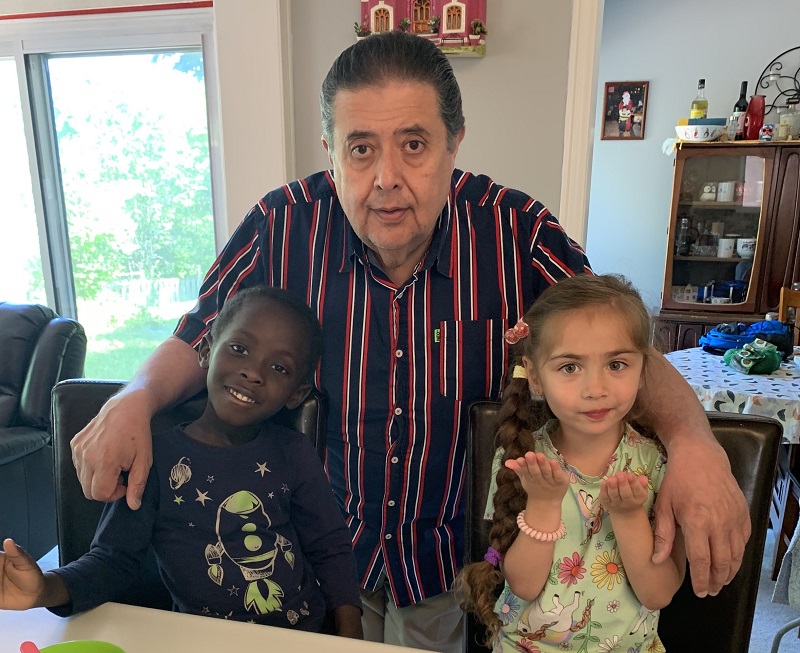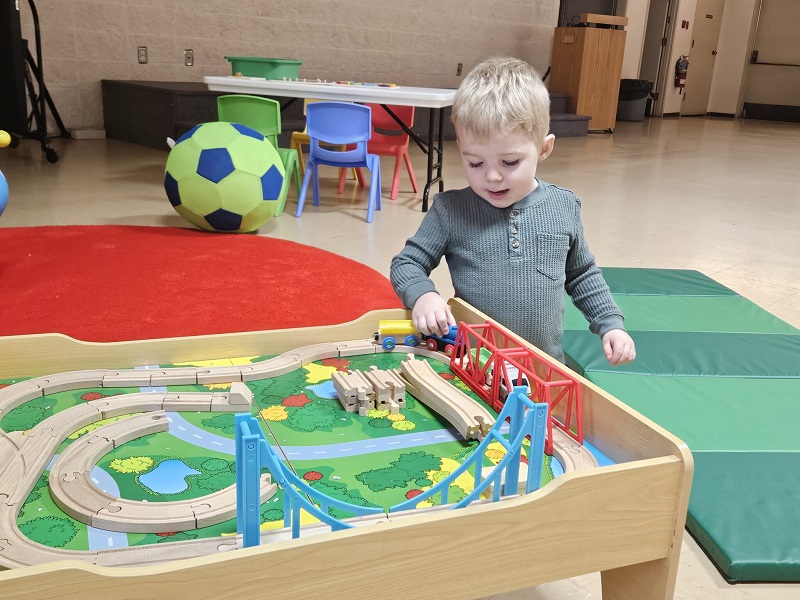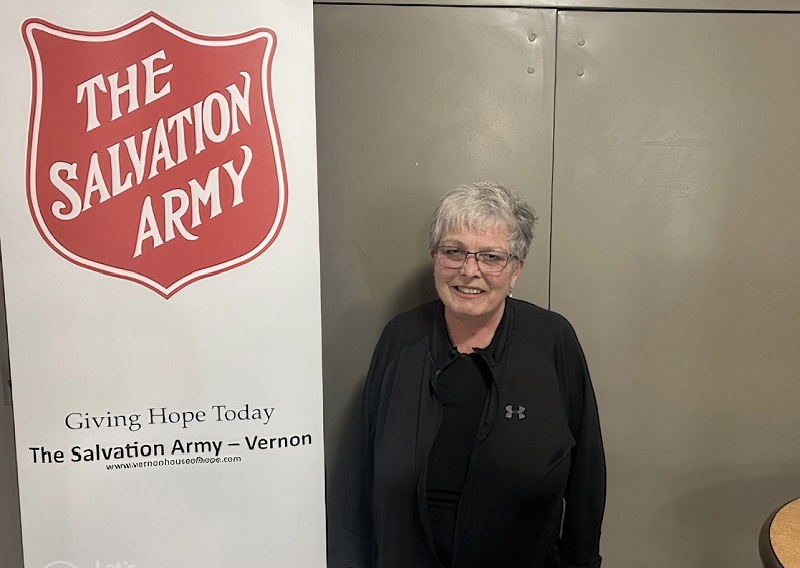Opportunity and Purpose for People Who Live With Disabilities
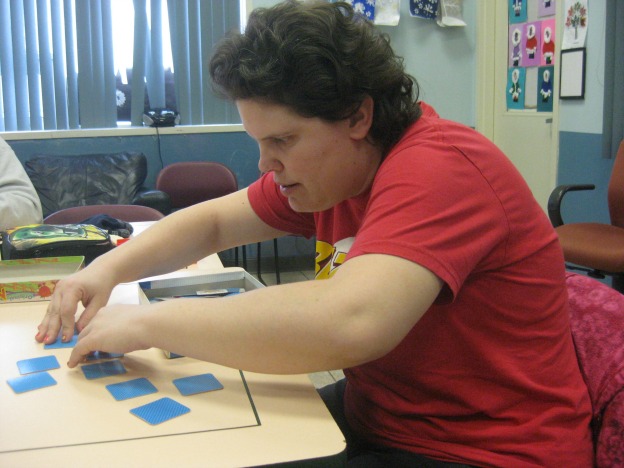
Disability doesn’t mean inability. At The Salvation Army’s Broadview Village Enrichment Program (BVEP) in Toronto, participants are conquering personal goals despite the day-to-day challenges of living with a disability.
“I really love it here,” says Lisa, 34. “Come and watch me do my puzzles.”
Sorting and recognizing patterns helps Lisa with fine motor development, hand-eye coordination, and sensory stimulation. With just the right amount of challenge, she stays interested and determined.
“Developmental disabilities cause individuals living with them many difficulties,” says Nicky Hall, BVEP Director. “The Salvation Army’s program makes it easier for them to develop and improve skills and contribute to their community.”
A developmental delay includes problems with learning, fine or gross motor skills, social or emotional skills, speech and language development, problem solving skills or a combination of these factors.
“Developmental delay is our primary focus,” says Nicky. “We also have participants who are autistic or medically fragile.”
Program activities are based on the individual’s learning goals, skills, interests, physical abilities and level of socialization. From arts and crafts to academics to life-skills training and community involvement, participants are achieving great success.
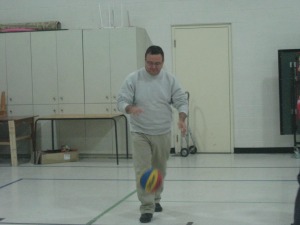 Steven, 46, enjoys playing basketball and taking part in the program’s Meals on Wheels that delivers lunch to the elderly. Physical fitness develops his gross motor skills and contributing to community not only gives him great satisfaction, but is helping his social development.
Steven, 46, enjoys playing basketball and taking part in the program’s Meals on Wheels that delivers lunch to the elderly. Physical fitness develops his gross motor skills and contributing to community not only gives him great satisfaction, but is helping his social development.
“I’m good at basketball,” says Steven with a grin. “Sometimes I’m sad. Coming here makes me happy and not bored.”
Lisa and Steven, like many participants, live in a supervised group home environment. Others live at home with family members.
“Caregivers and group homes love our program,” says Leela, program instructor. “It alleviates their stress and gives participants opportunities that might not be possible otherwise.”
Felipé, who lives at home with his mother and sister, discovered his passion for art at the day program. Painting is one way he expresses himself when he can’t write down his thoughts and feelings, or communicate them verbally. 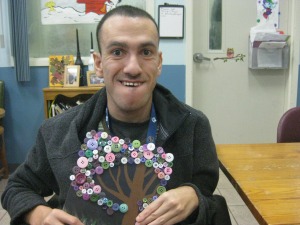
Every day, program participants overcome obstacles because of their strength, courage and determination.
When David came to the program he communicated with hand gestures. Now he is able to speak and say ‘I watched a movie’ and ‘I ate supper.’
Anjali had issues with trust, which made her anxious. Now she accepts what staff has to say and is much more relaxed.
Felicia had difficulty using both hands at once. Now she is making a rug and is excited to show her accomplishments.
When asked about goals for the program, Nicky says they want to create a sensory room where people with autism can express themselves. They also want to offer respite to families and participants.
“Funding is always an issue,” says Nicky. “But we are hopeful.”
At the end of the day, Lisa and the other participants leave feeling loved, happy and encouraged.
 “I like everything here,” says Lisa. And off she goes, strong, courageous and determined to embrace the challenges before her.
“I like everything here,” says Lisa. And off she goes, strong, courageous and determined to embrace the challenges before her.

